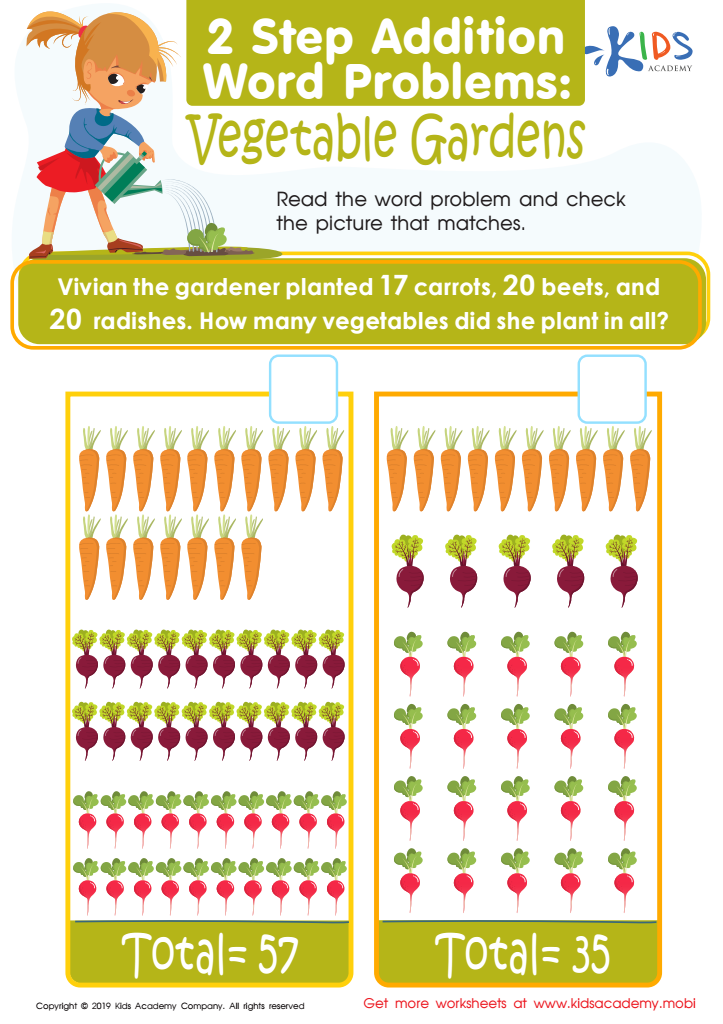Mathematics skills Worksheets for Ages 3-7
3 filtered results
-
From - To
Discover our engaging Mathematics Skills Worksheets designed for children aged 3-7! These printable resources are crafted to help young learners develop essential math skills through fun and interactive activities. Our worksheets cover fundamental concepts such as counting, addition, subtraction, shapes, and patterns, making math accessible and enjoyable. Each worksheet is tailored to cater to various learning styles, ensuring that every child can thrive. Explore our collection to boost your child's confidence in math while fostering a love for learning. Perfect for home practice or classroom use, our worksheets will support your child's early mathematical education effectively!


Vegetable Gardens Worksheet
Mathematics skills in children aged 3-7 are foundational for their overall cognitive development and success in school. During these early years, children's brains are highly elastic and receptive, making it an ideal time to cultivate mathematical understanding. At this age, children learn concepts such as counting, number recognition, and basic arithmetic, which are critical for later, more complex mathematical skills.
Parents and teachers should care about these skills because they not only establish a basis for academic achievement in mathematics but also enhance problem-solving and critical thinking abilities. Engaging children in mathematical activities can develop their logical reasoning, spatial awareness, and pattern recognition, which are skills applicable to various domains beyond math, including science and everyday decision-making.
Moreover, a strong mathematical foundation helps build confidence in children. When they grasp basic math concepts, they're more likely to view challenges positively and persevere through difficulties in learning. This confidence can translate into greater self-esteem in other subjects and holistic development.
By prioritizing mathematics skills during these early years, parents and teachers foster an environment where children can thrive both academically and emotionally, setting the stage for lifelong learning and a positive attitude towards mathematics.



 Assign to My Students
Assign to My Students



















